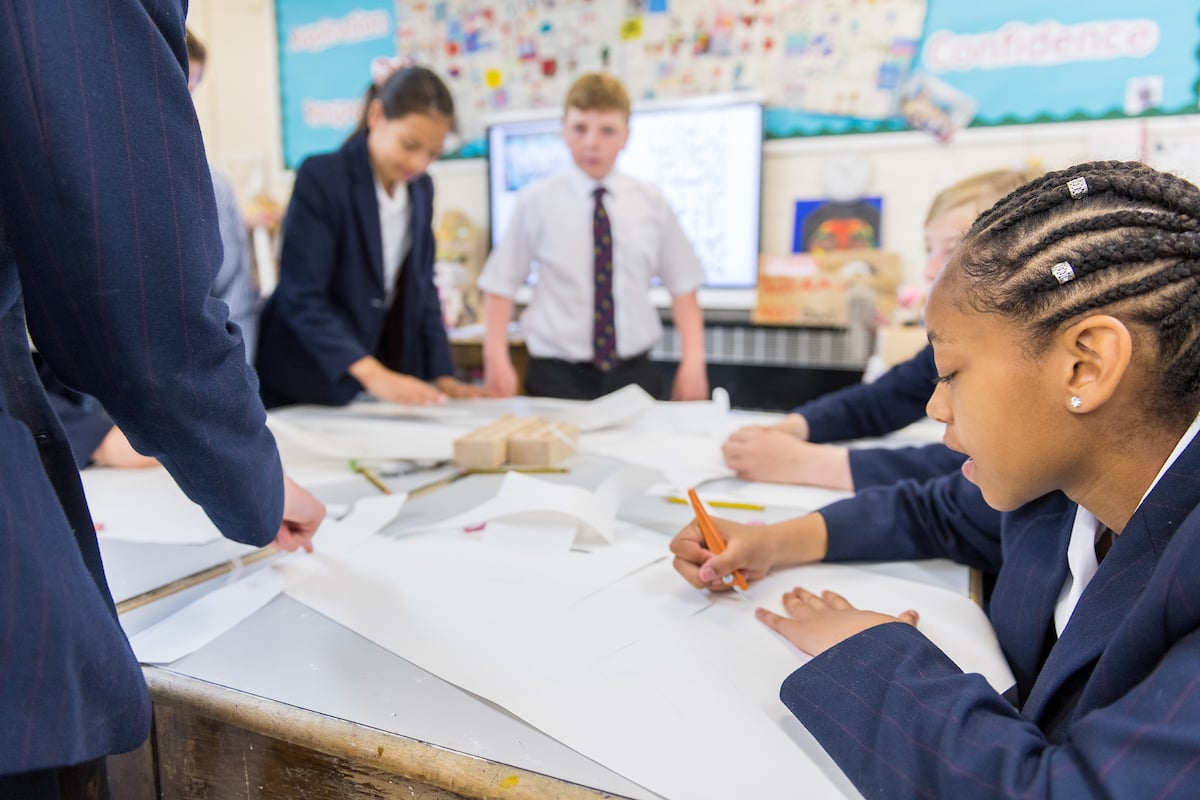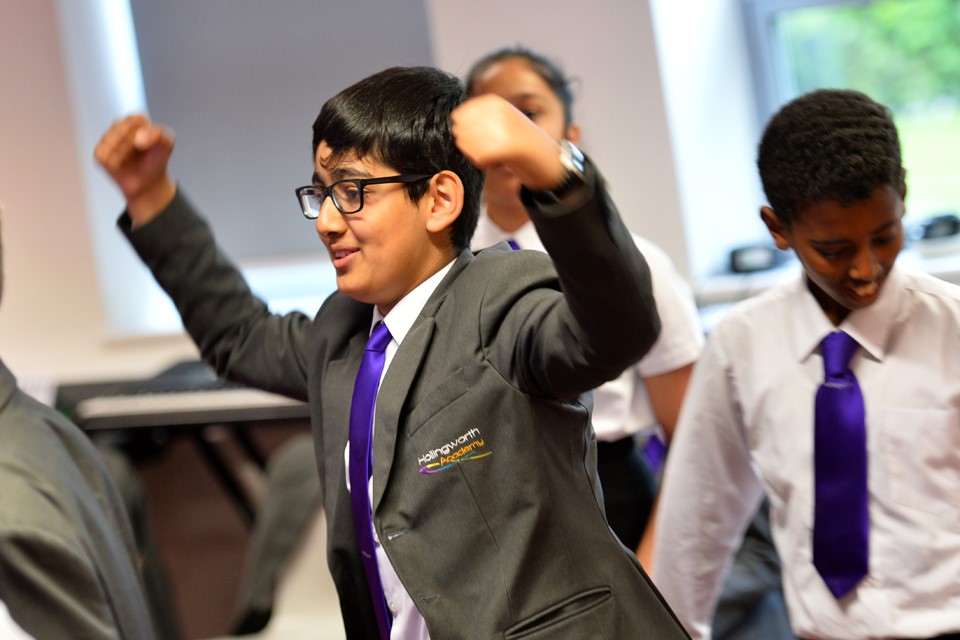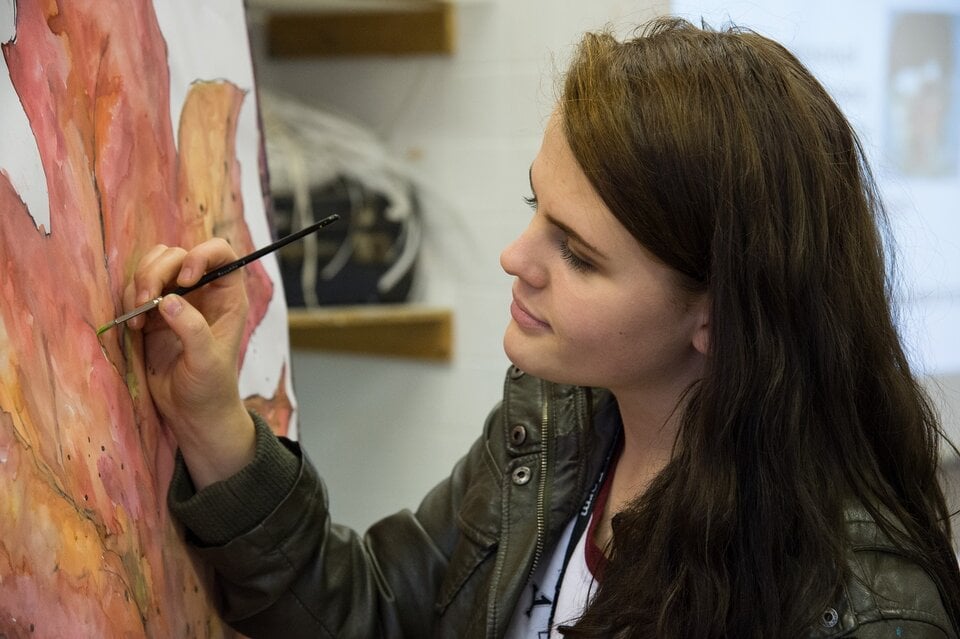
There are many ways to deliver Arts Award. Some schools link it to curriculum delivery, others use it as a targeted intervention strategy, Music Hubs and services use Arts Award to boost their First Access programmes and a wide range of arts organisations run Arts Award in any number of ways!
This resource is designed to help show you how you can deliver Arts Award as an extra-curricular activity in a secondary school setting. We know that the arts are increasingly pressured in schools, and hope that this will give you some inspiration for how it can work for your school - as well as how Arts Award can link to wider school aims and outcomes, boosting the role of the arts across your school.

With cultural capital introduced to the Ofsted framework (2019) as essential to a broad curriculum which fulfils the needs of all students, schools are tasked with ensuring pupils develop as confident creators and are able to make informed decisions about the culture they consume and participate in. Arts Award is an inclusive programme that can support settings to reduce any culture or cultural knowledge gap among pupils, providing extension and challenge to particular groups of young people to improve cultural opportunity and their overall personal development.
Offering Bronze Arts Award as an extra-curricular activity from Year 6 upwards provides a framework for schools to introduce practical arts activity, opportunities for pupils to experience the arts as members of an audience, be inspired by artists and their careers and to share their arts skills with others. Ideas for delivery could be through a dedicated youth arts council, a group of young carers, with pupils in receipt of pupil premium funding (for example at a breakfast club) or a group with more complex learning and health needs. Read how Cranborne Middle School used Arts Award to empower participants to plan their own lunchtime arts club for younger pupils.

Arts Award provides measurable results for demonstrating the impact of a school’s arts and cultural goals and ambitions, so it is ideal for contributing towards the Artsmark journey. It demonstrates the pedagogical importance of the arts in school by:
Find out more about how Arts Award can support the Artsmark statement of commitment/impact.
Research suggests that pupils who participate in extra-curricular activities perform better academically and socially, so encouraging all staff to help with the out-of-school offering is ideal for whole-school development. This can include teaching assistants, cover supervisors, mentors and others who aren’t directly linked to a school arts department.
Hosting an Arts Award adviser training opportunity for those adults supporting projects will provide a valid CPD opportunity for them and practical experience of delivering an accredited qualification.
To find out more, download our guide on how to offer Bronze Arts Award as an extra-curricular activity at KS3 to enhance cultural knowledge and personal development:
Arts Award provides an off-the-shelf programme for a wide range of extra-curricular clubs including music and singing, dance, craft, drama, computing/code, photography, film and forest school. At a time when schools are reporting that an increased emphasis on core academic subjects, together with funding pressures, are causing them to cut back on the creative curriculum, extra-curricular arts clubs can often play a key role in supporting pupils to maintain their arts interests.
Completing Gold Arts Award as an extra-curricular activity during sixth form helped Carl get a place at university to study Politics. Carl didn’t consider himself a very artistic person but took the award out of curiosity, and to put on his CV. The university were impressed with his Arts Award portfolio. As well as providing him with a whole skill set in photography, an interest in the arts, and helping him in his progression to university, the transferable skills that he gained including leadership and helped him develop as a student.
Arts Award impact study, 2016.
Arts Award can be delivered through vertical mentoring (VMG) in which pupils of all ages from Years 7 to 11 are mixed in tutor groups. The VMG model support many of the Arts Award criteria by creating peer mentoring opportunities, skills development sessions and themed assemblies and encouraging leadership among older pupils. Often the model also allows pupils to stay with same Arts Award adviser throughout their school years which encourages progression through the Arts Award levels.
Bronze Arts Award can be a valuable tool for structuring transition programmes from Year 6 into Year 7. Either used as a summer holiday activity or delivered during Year 7 to encourage staff and student relationships to grow. Victory Academy in Chatham, Kent, have designed a transition programme for new entrants that is themed around spending time outside of the classroom one afternoon a week completing the Bronze award in a variety of community settings across the academic year. Use our Bronze activity mapping resource to create your own plans.
Arts Award develops creativity, communication and leadership skills, building transferable skills which help prepare young people for higher-level study and employment. The Bronze award fits well into a week-long work experience placement and is a great way for educational establishments to demonstrate how they are providing meaningful careers progression, as well as providing evidence for how schools and colleges are achieving the Gatsby Benchmarks. This useful resource from York Theatre Royal explains how to create a work experience placement pack to support young people to achieve Bronze Arts Award when on work experience. Our dedicated planner also supports centres to deliver Bronze in 5 days or equivalent.

The Department for Education’s set of benchmarks for all schools as part of its character education framework aims to build the skills needed for resilience, empathy and employability. One of these character benchmarks tasks schools with providing an effective co-curriculum that includes arts, creativity, performance, teamwork, individual activity, new interests and developing existing ones. Read our blog on character education to find out more.
Through Arts Award schools can promote character defining extra-curricular opportunities such as Duke of Edinburgh, National Citizen Service, uniformed youth groups and Children’s University – with all of which Arts Award has aligned its criteria.
Duke of Edinburgh
Arts Award is an Approved Activity Provider for The Duke of Edinburgh's Award meaning that participants can link their Arts Award to the DofE and that Arts Award is a recognised activity as part of the skills section of the DofE. Any level of the DofE can be linked with any level of Arts Award.
National Citizen Service (NCS)
Young people taking part in NCS can work towards Arts Award through a wide range of creative activities for their social action project. Bronze Arts Award fits particularly well with the summer NCS programme when participants will have time to effectively plan and reflect on their activities. Our two resources will help with planning and evidencing Arts Award during NCS for advisers and for participants.
Uniformed youth groups
Fire, Police, Army and Sea Cadets, Girlguiding, The Scout Association, Girls’ and Boys’ Brigades, St John’s Ambulance and Woodcraft Folk are all part of the expanding organisations making up the uniformed youth work sector. Arts Award compliments the existing programmes being delivered throughout uniformed youth work. The portfolio based approach enables leaders to be flexible in deciding how they link it to badges and awards, taking as much time as their members need to achieve the levels.
The benefit that uniformed youth activities have on character building is recognised in formal education, for example Oasis Academy Nunsthorpe which has given every Friday afternoon over to Scouting.
Children’s University
The Children's University™ aims to promote exciting learning opportunities and experiences outside normal school hours for children aged 5 to 14. At the heart of its work is the ambition to raise aspirations, boost achievement and foster a love of learning, so that young people can make the most of their abilities and interests. Schools that are registered as Children’s University Learning Destinations, providing extra-curricular activity as part of the scheme can map their validated learning activities alongside the Arts Award offer by using our suggested guidelines
To find out more about linking Bronze Arts Award with your enrichment programmes, download our guide on how to offer Bronze as an extra-curricular activity at KS3 to enhance cultural knowledge and personal development: